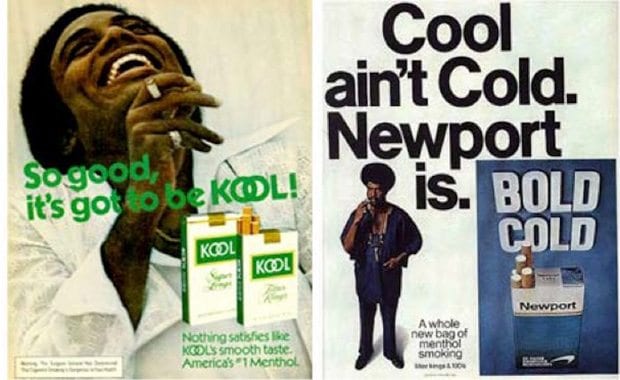
The U.S. Justice Department and the Tobacco-Free Kids Action Fund have reached an agreement with the four major tobacco companies requiring them to spend millions across major media as part of a settlement for their misrepresentation of the hazards of smoking — but the companies will not have to make a single purchase from a black print or broadcast media company.
As part of a 24-page proposed consent agreement reached Friday, the companies will have to spend more than $30 million advertising with the three major television networks and run full-page ads in 35 white and Hispanic newspapers as well as purchasing space on their respective websites. black publications and media companies were not among those included in the agreement.
The agreement is scheduled to go before U.S. District Judge Gladys Kessler in the U.S. District Court for the District of Columbia on Wednesday for final approval.
“We are shocked and deeply disappointed that the Justice Department, the Tobacco-Free Action Fund and the tobacco industry would all agree to sign off an advertising plan that totally disrespects the black community,” said Cloves C. Campbell, chairman of the National Newspaper Publishers Association, a federation of nearly 200 black newspapers.
“The industry’s past efforts to target African-American consumers have been thoroughly documented,” Campbell added. “It is sad that an industry that sought to exploit our community with a product that is harmful to our health now seeks to further devalue African-Americans by ignoring the black media when it is being forced to atone what a federal judge determined was a deliberate effort to deceive the American public.”
Peter S. Hamm, director of communications for the Tobacco-Free Kids Action, said on Monday that the media outlets were selected by Kessler and disclosed in an order issued Aug. 17, 2006. Hamm said he did not know how she determined what media outlets would be used to carry the advertising.
A telephone call last week requesting comment from the Justice Department was not returned.
The story of the agreement was first disclosed by Target Market News. The Chicago-based publication said an advertising source placed the value of the total buy at $30 million to $45 million.
The advertising campaign, which won’t go into effect until all appeals have been exhausted by the tobacco companies, was agreed to as part of a settlement that found tobacco companies misled the public about the dangers of smoking. The four defendants are Altria, R.J. Reynolds Tobacco, Lorillard and Philip Morris USA.
The U.S. Justice Department filed suit against the cigarette manufacturers on Sept. 22, 1999 charging that they had violated the Racketeer Influenced and Corruption Organizations Act. They were found guilty at the conclusion of a trial that lasted from Dec. 21, 2004 to June 9, 2005.
Though the tobacco industry is bypassing black media while complying with a federal order to disclose its deception, in the past it used the black media to target African-American consumers.
“The tobacco industry has gone to great lengths to target the African-American community over the past 30 years,” the Campaign for Tobacco-Free Kids stated. “Through market research and aggressive advertising, the industry has successfully penetrated this population. The industry’s ‘investment’ in the African-American community has had a destructive impact: African Americans suffer the greatest burden of tobacco-related mortality of any ethnic or racial group in the United States.”
“The health of the African American community has suffered disproportionately from the advertising campaigns of the tobacco companies, and black-owned media has been demonstrated to be the best way to engage the African American community,” Jim Winston, executive director of the National Association of Black-Owned Broadcasters, told Target Market News. “Yet, now that the tobacco companies are being required to educate the public about the harm that tobacco products have caused, the companies and the DOJ have no plan to direct any educational advertising to our communities.”
Both Winston and Campbell said they plan to contact the Justice Department and ask it to direct tobacco companies to include black-owned print and broadcast media in their public education buys. If that fails, Campbell said, his organization will take stronger action.
“If our newspapers aren’t good enough to advertise in, their products — including the non-tobacco ones — aren’t good enough for us to consume,” he said.
George E. Curry is editor-in-chief of the National Newspaper Publishers Association.






